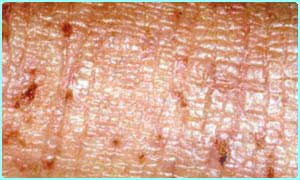 If you are looking for a way to treat your baby’s eczema, then this article is a must read for you. My baby used to have year-round Eczema on his face, hands, and feet. Trust me, there is nothing worst than your child having dry and itchy skin. So I decided to find natural solutions to fix my baby’s eczema outbreaks besides the ointment that my doctor was prescribing for him. Guest what, I found some! There are some simple steps that you can take to reduce your baby’s eczema and flare-ups. However, before we continue, let’s define eczema.
If you are looking for a way to treat your baby’s eczema, then this article is a must read for you. My baby used to have year-round Eczema on his face, hands, and feet. Trust me, there is nothing worst than your child having dry and itchy skin. So I decided to find natural solutions to fix my baby’s eczema outbreaks besides the ointment that my doctor was prescribing for him. Guest what, I found some! There are some simple steps that you can take to reduce your baby’s eczema and flare-ups. However, before we continue, let’s define eczema.What is Eczema?
Eczema may look different from person to person, but it is most often characterized as dry, red, and extremely itchy patches on the skin. Some people have more severe Eczema than others. Some people even have weeping or oozing Eczema. But, having Eczema is not a horrible plague. Many people have to deal with Eczema on a daily or seasonal basis. Eczema can occur on just about any part of the body and many substances have been identified as itch "triggers" for those with Eczema. Eczema is something that affects individuals of all ages; from young babies to adults.
What Things Should You Do to Help Your Baby Avoid Eczema Outbreaks?
Anything from changing weather conditioners to dish detergents and clothing fabrics can aggravate your baby’s Eczema. If your child is susceptible to Eczema, avoid dressing him or her in wool or rough fabrics. These fabrics will only irritate their dry, itchy skin.
Also, consider getting your baby an allergy test. Although having one done is sometimes cumbersome and time consuming, but you can discover what foods, animals, carpets, or even trees cause your baby’s Eczema to flare up. I used to love dressing my baby in little polyester Hawaiian shirts and shorts, but after the allergy test I learned that this was triggering my baby’s eczema.
If you can’t afford to have an allergy test done, consider keeping a journal. Keep a log of everything your child eats and wears. Eventually, you will discover certain patterns. That is where self-diagnosis can begin.
What can I do to treat my baby’s Eczema?
There really isn’t a cure for Eczema. However, there are tons of over-the-counter lotions, creams, and baths available. If you really want a high-powered solution, you may even opt to get some prescribed medications. But, there are pros and cons for both options. Here’s some natural and extremely effective remedies for your baby’s eczema that I discovered work best.
All-Natural Creams
The best product that I found for my baby’s Eczema was Beauty 4 Ashes’ eczema creams and oils. It took me awhile to find this stuff; but, boy am I glad that I did. So, let me save you time and money and give you the company’s website address. It is www.discoverb4a.com.
There are virtually no all-natural Eczema products out there. Most prescribed medications for your baby are actually steroids. Unfortunately, steroids can have a harmful affect on your child’s health. As a result, your baby’s skin will age very quickly. Steroids are also pretty toxic and ultimately, your child will grow immune to lower dosages and require more milligrams. My recommendation, avoid prescribed medications.
As for the over-the counter stuff, you get what you pay for. Most over-the-counter products like Cortisone 10, Cortaid, or Calamine Lotion do more harm than good. Moreover, most store products have chemical emulsifiers and preservatives that actually can make your baby’s skin drier, such as Aveeno and Eucerin. They are temporary, ineffective solutions. Your best bet is to buy an all-natural cream or oil that contains Eczema healing essentials and herbs. This is why I recommend Beauty 4 Ashes’ Eczema products for your baby. Their products contain essential oils and herbs that are stronger and safer than any chemical alternative. Plus, their products contain skin healing Aloe Vera and skin penetrating natural oils--- and oils actually moisturize your skin better than lotions because they penetrate the dermis. If you use Beauty 4 Ashes, your baby’s Eczema should get healed within a few weeks
Read more!




